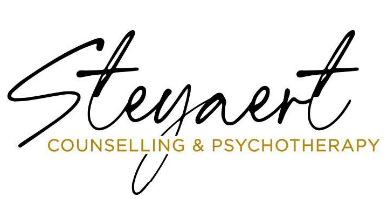What Is Narrative Therapy?
Narrative therapy is a collaborative and empowering therapeutic approach that focuses on the stories we construct about our lives. It recognizes that the stories we tell ourselves can shape our identity, beliefs, and actions. Narrative therapy helps individuals gain a fresh perspective and find new possibilities for change by exploring and reshaping these narratives.
How Does Narrative Therapy Work?
In narrative therapy, the therapist acts as a facilitator, assisting clients in externalizing their problems and exploring the dominant stories they’ve adopted. By separating the person from the problem, individuals can gain a sense of agency and view the problem as something external rather than inherent to their identity. Through discussions, reflections, and various techniques, narrative therapy aims to empower clients to rewrite their stories in ways that promote growth and resilience.
What Are the Key Principles of Narrative Therapy?
Narrative therapy is based on several principles, including:
- Externalization: Separating the person from the problem to reduce self-blame and shame.
- Deconstruction: Questioning dominant narratives and exploring alternative perspectives.
- Social construction: Understanding cultural, social, and historical contexts influence our stories.
- Re-authoring: Collaboratively creating new narratives that empower and inspire change.
- Unique outcomes: Identifying exceptions to the problem story, highlighting strengths, and finding alternative solutions.
What Issues Can Narrative Therapy Address?
Narrative therapy can be effective in addressing a wide range of issues, including:
- Depression
- Anxiety
- Trauma
- Relationship Challenges
- Addiction
- Grief
- Identity Exploration
Narrative Therapy is particularly helpful in situations where individuals feel stuck, overwhelmed, or constrained by their current narratives.
How Long Does Narrative Therapy Take?
The duration of narrative therapy varies depending on the individual’s unique circumstances, goals, and progress. While some individuals may experience significant shifts in just a few sessions, others may require longer-term therapy. The collaborative nature of narrative therapy ensures that the pace is set by the client’s needs and preferences.
Can Narrative Therapy Be Used Alongside Other Therapeutic Approaches?
Yes, narrative therapy is often used in conjunction with other therapeutic modalities. It can complement approaches such as cognitive-behavioural therapy (CBT), mindfulness-based therapy, and solution-focused brief therapy. Combining approaches allows therapists to tailor the treatment to the individual’s specific needs and preferences.
Is Narrative Therapy Evidence-Based?
Narrative therapy has a growing body of research supporting its effectiveness. While it may not have as extensive a research base as some more traditional approaches, numerous studies have demonstrated positive outcomes across various populations and presenting concerns. Additionally, narrative therapy’s emphasis on empowering individuals and incorporating their unique perspectives aligns with current trends in client-centered and strengths-based approaches.
Can Narrative Therapy Be Self-Administered?
While narrative therapy is typically conducted in a therapeutic setting, individuals can also incorporate narrative techniques into their personal growth and self-reflection practices. Engaging in activities like journaling, creating life maps, or sharing stories with supportive friends or family members can help promote self-awareness and personal growth.
Steyaert Counselling’s Approach to Narrative Therapy
To maximize narrative therapy, collaborating openly with your therapist, reflecting independently, and challenging limitations, are important. To see if narrative therapy is the right therapeutic approach, speak with Hannah at our London office or Hailey at our Burlington office today.
Narrative Therapy in London, Ontario
Hannah has utilized narrative therapy in her work with dozens of client therapy sessions. Don’t hesitate to contact her office in East London, Ontario, for more information.
Narrative Therapy in Burlington, Ontario
Hailey has also utilized narrative therapy in her work with dozens of client therapy sessions. Don’t hesitate to contact her office in Central Burlington, Ontario, for more information.
